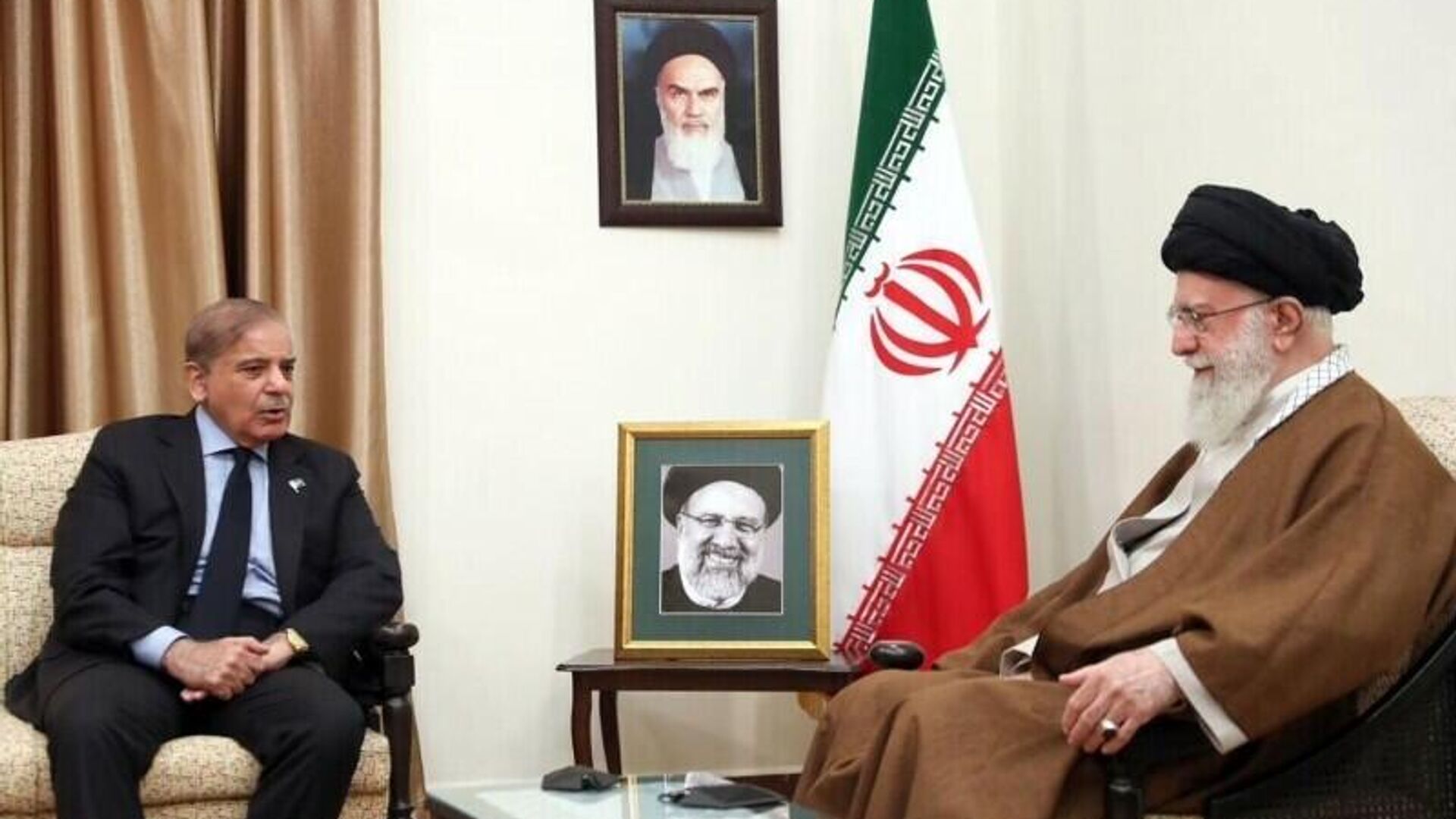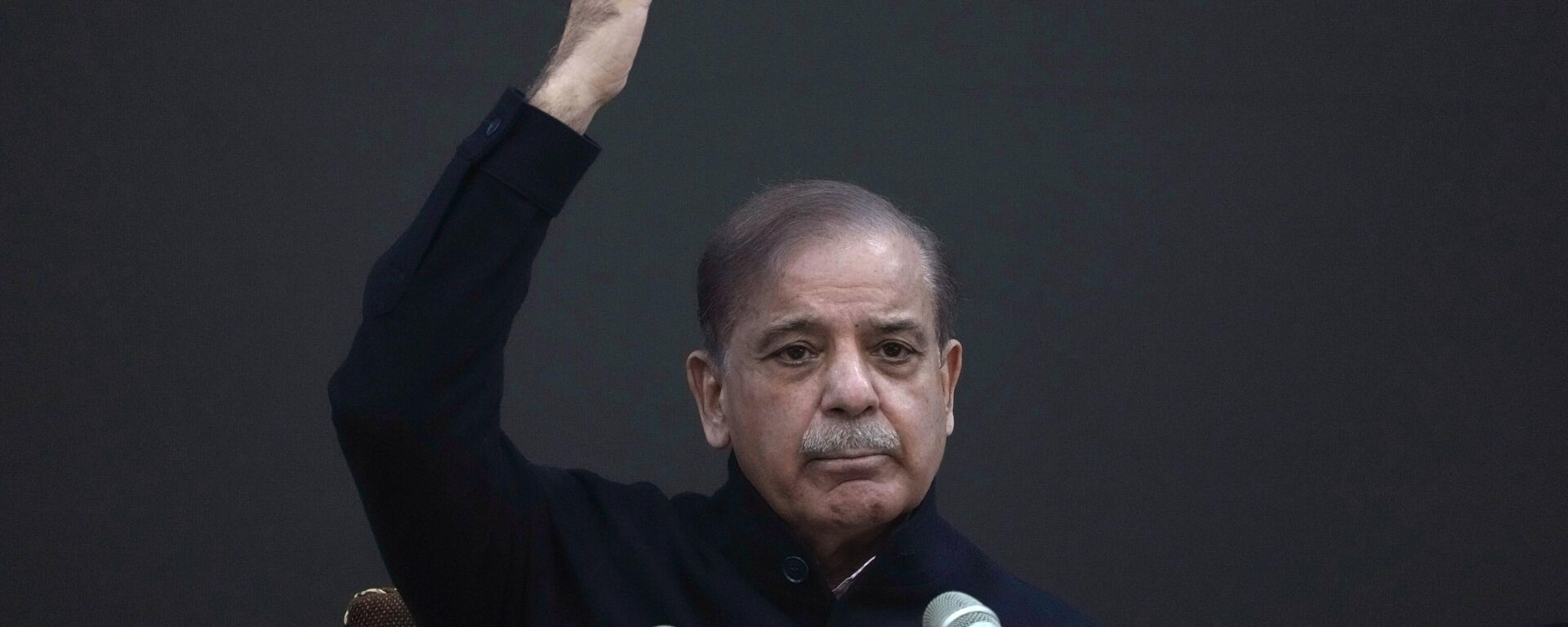https://sputniknews.in/20241012/can-pakistan--iran-overcome-geo-political-complexities--8266015.html
Can Pakistan & Iran Overcome Geo-Political Complexities?
Can Pakistan & Iran Overcome Geo-Political Complexities?
Sputnik India
Since the Iranian Islamic Revolution in 1979, the relationship between the two states has remained uncertain. However, the current political winds in the Middle East are changing global dynamics, which are having a direct impact on South Asia.
2024-10-12T15:04+0530
2024-10-12T15:04+0530
2024-10-12T15:42+0530
pakistan
iran
middle east
us
islamic revolution guards corps (irgc)
saudi arabia
shanghai cooperation organisation (sco)
brics
sputnik opinion
https://cdn1.img.sputniknews.in/img/07e8/0a/04/8240814_0:15:800:465_1920x0_80_0_0_5f22ed5466f179efb0c07a2070d2b537.jpg
Earlier this year, in January, both states launched missile attacks on each other’s territory to target militant groups, escalating tensions. Iran has issues with Jaish-ul-Adl, a Sunni militant group, while Pakistan faces challenges from Baloch separatist groups. Despite this, both countries diplomatically normalized their relations following these incidents.He further stated that U.S.-led sanctions on Iran have strained potential projects between the two countries, including gas pipelines and trade relations, thus affecting cooperation on mutual security concerns, especially in border regions. Additionally, with rising Baloch militancy in Pakistan, Islamabad blames Iran for not addressing militant infrastructure along the border.She also expressed that, given Iran’s complicated relationships with the US and its regional mistrust of states, including Saudi Arabia, this alignment may incite distrust in Tehran.*Under UN sanctions
https://sputniknews.in/20240809/pakistan-rubbishes-israeli-media-claims-of-supplying-shaheen-3-missiles-to-iran-7991173.html
pakistan
iran
middle east
us
saudi arabia
Sputnik India
feedback.hindi@sputniknews.com
+74956456601
MIA „Rossiya Segodnya“
2024
Muhammad Sharif
https://cdn1.img.sputniknews.in/img/07e7/0b/05/5257054_0:0:443:444_100x100_80_0_0_b8bd2af32be62a6eecdb4a84c7fd978f.jpg
Muhammad Sharif
https://cdn1.img.sputniknews.in/img/07e7/0b/05/5257054_0:0:443:444_100x100_80_0_0_b8bd2af32be62a6eecdb4a84c7fd978f.jpg
News
en_IN
Sputnik India
feedback.hindi@sputniknews.com
+74956456601
MIA „Rossiya Segodnya“
Sputnik India
feedback.hindi@sputniknews.com
+74956456601
MIA „Rossiya Segodnya“
Muhammad Sharif
https://cdn1.img.sputniknews.in/img/07e7/0b/05/5257054_0:0:443:444_100x100_80_0_0_b8bd2af32be62a6eecdb4a84c7fd978f.jpg
pakistan, iran, middle east, us, islamic revolution guards corps (irgc), saudi arabia, shanghai cooperation organisation (sco), brics
pakistan, iran, middle east, us, islamic revolution guards corps (irgc), saudi arabia, shanghai cooperation organisation (sco), brics
Can Pakistan & Iran Overcome Geo-Political Complexities?
15:04 12.10.2024 (Updated: 15:42 12.10.2024) Since the Iranian Islamic Revolution in 1979, the relationship between the two states has remained uncertain. However, the current political winds in the Middle East are changing global dynamics, which are having a direct impact on South Asia.
Earlier this year, in January,
both states launched missile attacks on each other’s territory to target militant groups, escalating tensions. Iran has issues with Jaish-ul-Adl, a Sunni militant group, while Pakistan faces challenges from
Baloch separatist groups. Despite this, both countries diplomatically normalized their relations following these incidents.
“Historically speaking, during the era of General Zia ul Haq, Pakistan provided support to the Taliban* and fostered sectarianism, a trend that mirrored Iran’s policies under Khomeini’s government. While Iran sought alignment with India, it also adopted a lenient stance towards Baloch separatist groups. Additionally, Iran has been known to recruit Pakistani Shiites for deployment in Syria, further complicating the regional dynamics,” Dr. Mohammad Zahid, associated with the think tank ‘Rasanah: International Institute for Iranian Studies’ and a UK-based geopolitical expert, told Sputnik India.
He further stated that
U.S.-led sanctions on Iran have strained potential projects between the two countries, including
gas pipelines and trade relations, thus affecting cooperation on mutual security concerns, especially in border regions. Additionally, with rising Baloch militancy in Pakistan, Islamabad blames Iran for not addressing militant infrastructure along the border.
“The 1979 Iranian Revolution, along with Pakistan’s support for the US-backed Shah, heightened distrust between the two nations. Pakistan’s connections with Iran are significantly impacted by its relations with the US and other Western nations. When it comes to economic and military support, especially in counterterrorism and maintaining regional security, Islamabad has frequently sided with Washington,” Aimen Jamil, a pundit of Iranian affairs, told Sputnik India.
She also expressed that, given Iran’s complicated relationships with the US and its regional mistrust of states, including Saudi Arabia, this alignment may incite distrust in Tehran.
“Regional shifts, such as the US withdrawal from Afghanistan, present new opportunities… As Pakistan will soon join BRICS, regional organizations like the SCO and BRICS further open doors for cooperation,” she stated.



